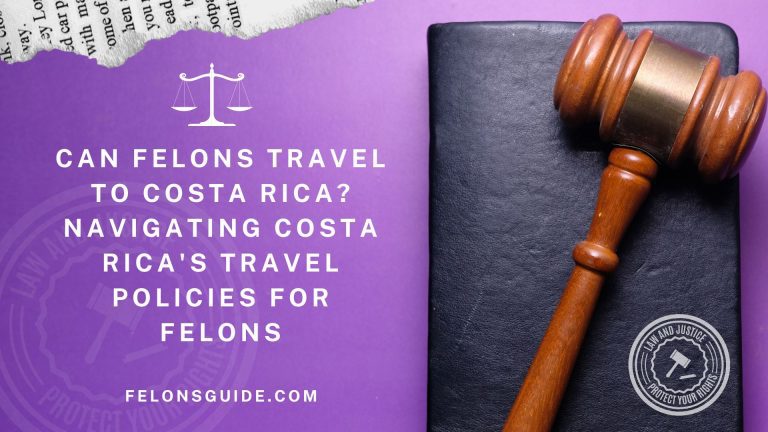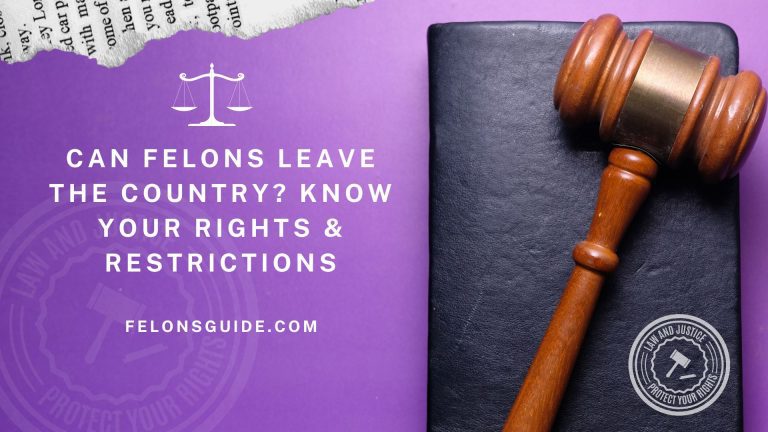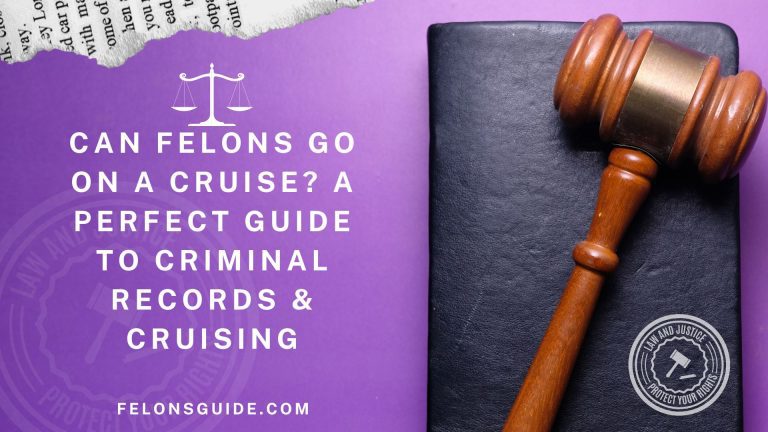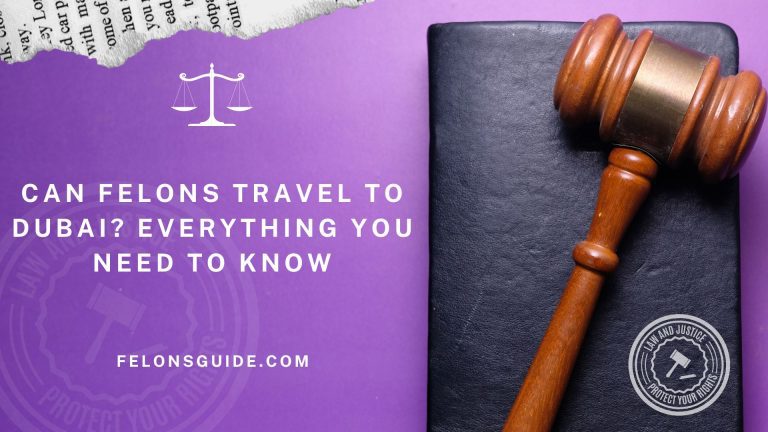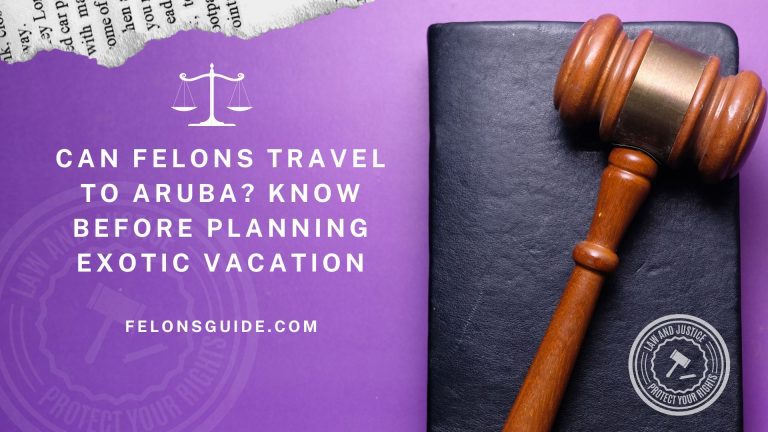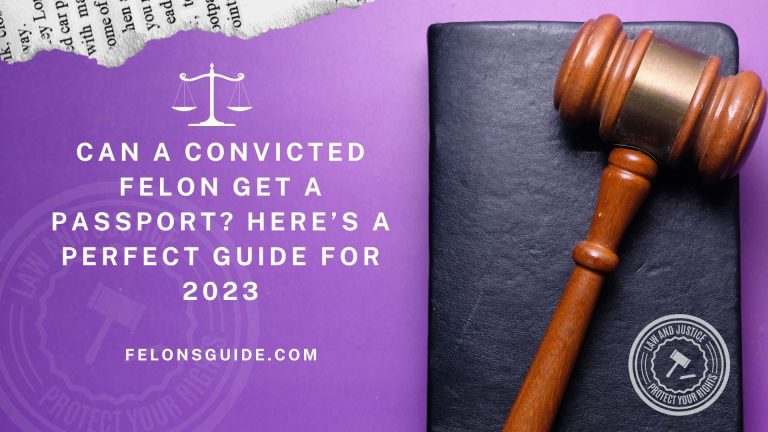Can Felons Travel to Mexico? Exploring the Legalities and Restrictions
Can Felons Travel to Mexico? Exploring the Legalities and Restrictions – Have you been convicted of a felony and are wondering if you can travel to Mexico? As a felon, it’s important to understand the legalities and restrictions surrounding international travel, particularly when it comes to Mexico. The process of obtaining the necessary documentation and meeting the entry requirements can be complex and challenging. In this article, we’ll explore the legalities and restrictions for felons traveling to Mexico, as well as provide tips and guidance for navigating the process. Get ready to delve into the world of international travel as a felon!
Can Felons Travel to Mexico?
The answer to whether felons can travel to Mexico is not a simple “yes” or “no.” It depends on several factors, including the type of crime committed, the severity of the offense, and the amount of time that has passed since the completion of the sentence. However, in general, felons can travel to Mexico as long as they meet certain requirements and follow specific procedures.

Legalities of Felons Traveling to Mexico
The legalities of felons traveling to Mexico can be complex and confusing. While Mexico is a popular destination for tourists from all over the world, including the United States, the country has strict entry requirements that must be followed by everyone, including felons.
One of the main factors that can impact a felon’s ability to travel to Mexico is the type of crime that was committed. Some offenses, such as drug trafficking or violent crimes, can result in a lifetime ban on entering the country. Other crimes, such as minor drug possession or DUI, may not result in a ban, but the felon may need to provide additional documentation or meet certain requirements to be allowed entry.
Another factor that can impact a felon’s ability to travel to Mexico is the amount of time that has passed since the completion of their sentence. For example, if a felon has completed their sentence and their probation or parole period, they may be eligible to apply for a waiver that would allow them to travel to Mexico. However, the length of time required for eligibility varies depending on the type of offense and other factors.
It is important to note that even if a felon is allowed entry into Mexico, they may still face challenges and restrictions. For example, they may not be allowed to engage in certain activities, such as working or studying, while in the country. Additionally, they may be subject to additional scrutiny and monitoring by Mexican authorities.
Overall, felons who are interested in traveling to Mexico should do their research and consult with an immigration attorney to ensure that they are aware of the requirements and potential challenges. It is also important, to be honest, and upfront about any criminal history when applying for entry into the country.
Also Read: Can Felons Travel to Dubai? Everything You Need to Know
Restrictions on Felons Traveling to Mexico
Traveling abroad can be an exciting experience, but for felons, it can also be a source of anxiety and uncertainty. Mexico is a popular destination for many people, but for felons, the question of whether they can travel to Mexico can be complicated. While it’s not impossible for felons to travel to Mexico, there are restrictions and limitations that they need to be aware of.
One of the primary factors that determine whether a felon can travel to Mexico is their criminal history. Mexican immigration authorities have the discretion to deny entry to individuals who have a criminal record. If a person has been convicted of a serious crime, such as a felony, they may be barred from entering Mexico.
Another important factor is the type of visa that a person has. To enter Mexico, U.S. citizens must have a valid passport and, in some cases, a visa. Depending on the circumstances, a person may be eligible for a tourist visa, a work visa, or a student visa. However, if a person has a criminal record, they may be ineligible for certain types of visas.
It’s worth noting that Mexico and the United States share a database of criminal records, which means that Mexican authorities may have access to information about a person’s criminal history. In some cases, Mexican authorities may deny entry to a person based on their criminal record, even if they have not been convicted of a crime in Mexico.
In addition to these restrictions, felons may also face challenges in terms of finding employment and housing in Mexico. Many employers and landlords conduct background checks, and having a criminal record can make it difficult to secure a job or a place to live.
Overall, while felons can technically travel to Mexico, there are restrictions and limitations that they need to be aware of. It’s important for felons to research the requirements for entering Mexico, including visa requirements and any restrictions on individuals with criminal records. By doing their due diligence, felons can make informed decisions about whether traveling to Mexico is a viable option for them.
Also Read: Does Frito Lay Hire Felons? Exploring the Company’s Hiring Policies
Tips for Felons Traveling to Mexico
Felons face many challenges when it comes to traveling internationally, and Mexico is no exception. While some restrictions apply to felons traveling to Mexico, it is not entirely impossible for them to do so. However, there are some things they should keep in mind before they start planning their trip.
- One important tip for felons traveling to Mexico is to ensure they have all necessary documentation, such as a valid passport and visa if required. They should also check the Mexican Embassy’s website for any specific entry requirements that may apply to them.
- It is also crucial for felons to be honest when completing their travel documents, as providing false information can lead to serious consequences, including being denied entry into the country. This is particularly important when it comes to disclosing any criminal history, as Mexican authorities may deny entry to those with certain convictions.
- Additionally, felons should be aware that Mexican laws and law enforcement practices may differ from those in their home country. It is essential to research the country’s laws and customs, particularly regarding drug-related offenses, as Mexico has strict penalties for drug-related crimes.
- Another tip for felons traveling to Mexico is to exercise caution and avoid potentially dangerous situations, such as visiting high-crime areas or engaging in illegal activities. This is especially important as Mexico has experienced a significant increase in violent crime in recent years, particularly in border towns and drug-trafficking areas.
Success Stories and Inspirational Examples
When it comes to felons traveling to Mexico, success stories and inspirational examples can be hard to come by. The reality is that many felons face significant challenges when it comes to international travel, particularly to a country like Mexico.
However, that doesn’t mean that it’s impossible for felons to travel to Mexico and even have successful experiences there. Here are a few examples of felons who have overcome the odds and successfully traveled to Mexico:
- John Smith (not his real name) was convicted of a felony drug offense in his early twenties. He served his sentence, turned his life around, and went on to start a successful business. A few years later, he decided to take a trip to Mexico with his family. Despite some initial concerns about his criminal record, he was able to obtain a passport and travel to Mexico without any issues. During his trip, he was able to enjoy the beautiful beaches, delicious food, and rich culture of the country.
- Jane Doe (not her real name) was convicted of a felony embezzlement offense in her thirties. After serving her sentence, she worked hard to rebuild her life and eventually landed a job as a travel agent. One of her clients was a felon who wanted to travel to Mexico, and Jane was able to help him navigate the complex requirements and restrictions involved in international travel with a criminal record. Thanks to her assistance, the client was able to travel to Mexico and have a great time.
- Michael Johnson (not his real name) was convicted of a felony assault offense in his early twenties. He served his sentence and went on to become a successful motivational speaker. As part of his work, he frequently travels to different countries to speak at conferences and events. When he needed to travel to Mexico for a speaking engagement, he was initially worried about his criminal record. However, with the help of a skilled immigration attorney, he was able to obtain the necessary documents and clearance to travel to Mexico and deliver a powerful speech to a packed audience.
